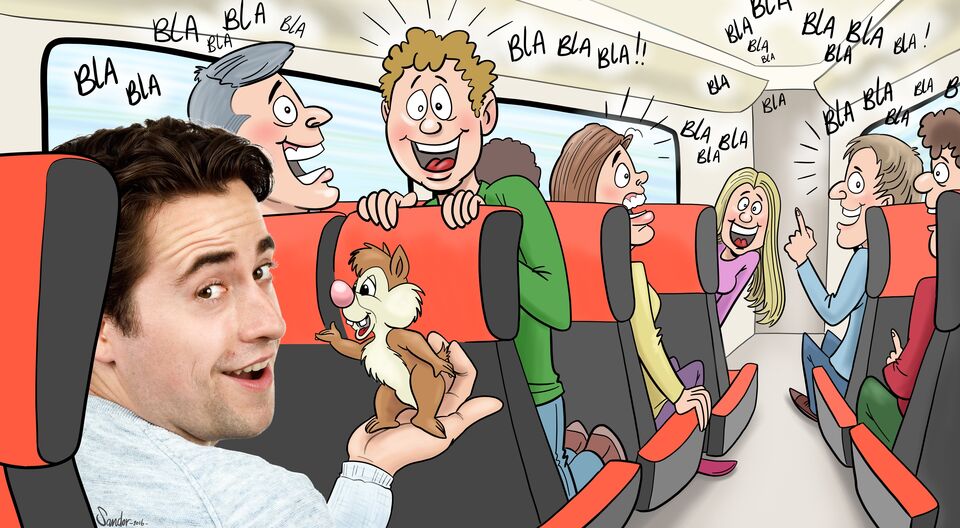Brain Matters | All aboard the chatty carriage
Have you ever found yourself seated in the silent carriage of a Dutch train (‘de stiltecoupé)? Chances are, it wasn’t silent at all, in spite of all the signs and agitated people in the carriage. The Dutch Railways are bothered by this and announced a pilot to remind passengers to keep silent. Soon, middle-aged couples sitting opposite of you can not only cough relentlessly if you dare to make a sound, but also point to a sign printed on the headrest of their seats.
I find silent carriages to be rather awkward, especially full ones. Each passenger is occupied with avoiding each other’s gaze, either looking around restlessly or plunging oneself into a lifeless object, such as a book or laptop. Honestly, do these surrealistic conditions really make us happy?
According to a study conducted by Nicholas Epley and Juliana Schroeder in 2014, most people actually expect this, at least compared to other commuter situations. They proposed each member of a group of US rail commuters one of three scenarios: either having to be silent during one’s entire commute, or being obliged to make a conversation with a fellow passenger, or act as in one’s regular commute. They found that the outlook of having to speak up was the most unattractive one.
However, are these expectations justified? Epley and Schroeder set out to find out, by letting each commuter in a different group experience one of these three scenarios. These commuters reported completely opposite results to those expected: A chatty commute was actually more pleasant than a silent one.
A chatty commute also sounds pretty pleasant to me. Why can’t we replace all silent carriages with chatty carriages? Other studies have already pointed out that social interaction can make a morning commute more bearable and leads to a more positive outlook during the entire day. This is badly needed, as a study of Stutzer and Frey in 2008 points out that commuters, especially long-distance ones, tend to be unhappier than their non-commuting peers.
Wait, do you prefer a silent carriage, because you’re a workaholic? Don’t worry, Epley and Schroeder also asked commuters about their productivity and found no difference between conditions. Hence, a little buzz in your carriage is not necessarily a bad thing.
So, do you have a moody colleague or fellow student? Please advise him or her to avoid the silent carriage - that’s in everybody’s best interest.
Alain Starke is a PhD student at Human-Technology Interaction


Discussion